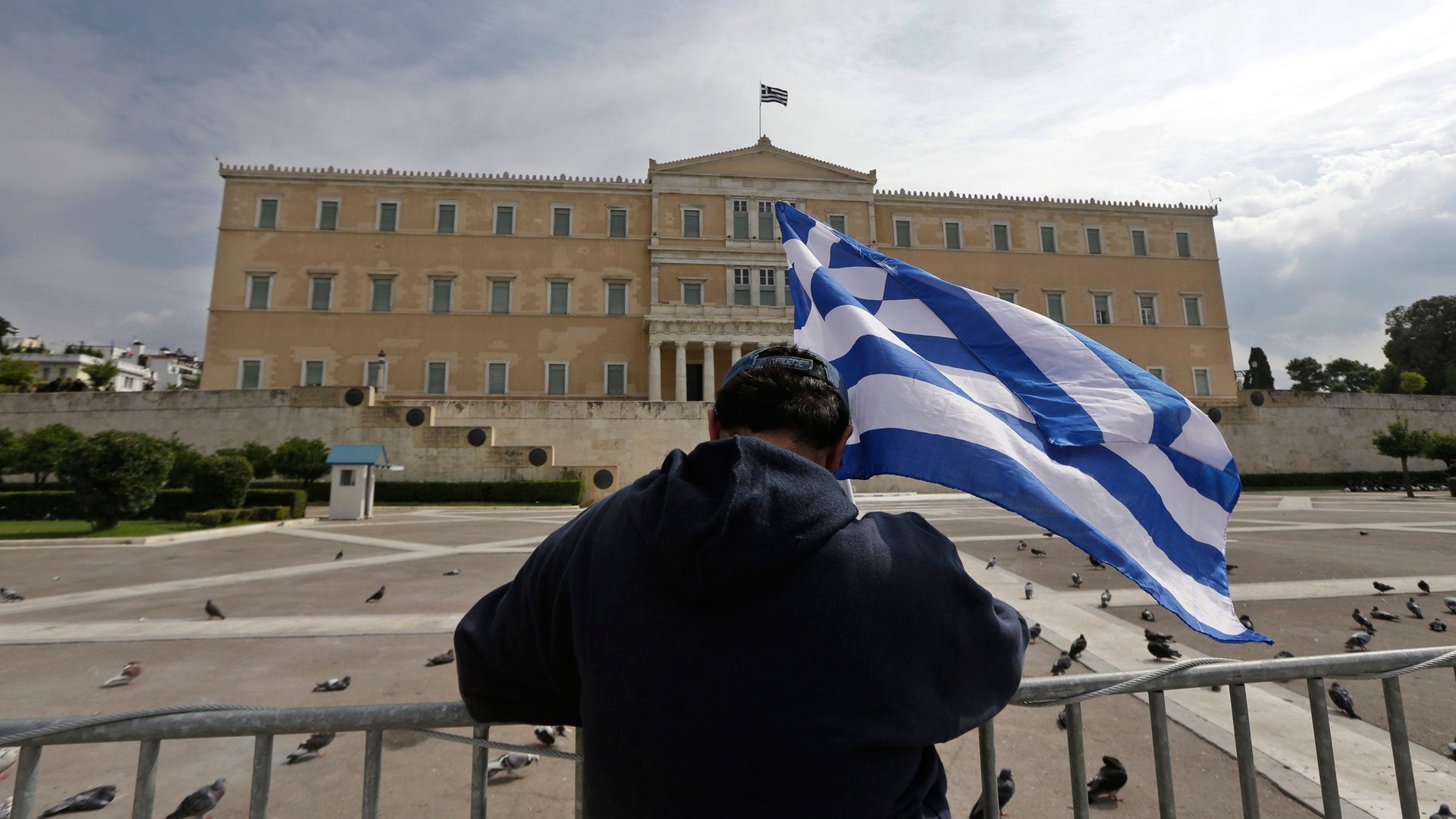Will Greece’s parliament pass a controversial austerity plan this week? Yes, but not without a lot of pain
Greece is in the spotlight this week as its government struggles to gain parliamentary approval for a €13.5 billion ($17.3 billion) austerity package. The mixture of severe budget cuts and structural reforms is required for international lenders to hand over a €31.5 billion round of bailout aid. Without this aid the country could be broke by mid-month, possibly leading to a euro zone exit.


Greece is in the spotlight this week as its government struggles to gain parliamentary approval for a €13.5 billion ($17.3 billion) austerity package. The mixture of severe budget cuts and structural reforms is required for international lenders to hand over a €31.5 billion round of bailout aid. Without this aid the country could be broke by mid-month, possibly leading to a euro zone exit.
Prime Minister Antonis Samaras predicts disaster should lawmakers fail to agree, saying:
We must save the country from catastrophe … if we fail to stay in the euro nothing will make sense.
Word this morning is that the package will likely pass, but not without a great deal of pain. The first parliamentary vote on Wednesday over structural reforms will probably be approved by a slim majority. The Sunday vote on the 2013 budget could prove more contentious. The junior ruling Democratic Left Party is refusing to support the tax hikes and spending cuts. The leftist party with 16 lawmakers in parliament could reject the budget, and also exit government, creating further instability in the country.
Outside of parliament, workers will take to the streets to make their views known. There are planned walkouts for Tuesday and Wednesday by various Greek workers groups, while a strike by the union of Public Power Corporation employees could literally leave parts of Greece in the dark from power blackouts. Journalists will strike today as well over social security issues.
Markets are already reacting to what may or may not happen in Greece. The euro hit a one-month low this morning against the British pound, while investors rushed to buy safe-haven two-year German bonds, pushing yields into negative land.
Meanwhile, back in Greece, the fireworks have already started. Parliament’s economic affairs committee began budget debates on Saturday. Euclid Tsakalotos, a member of the leftist opposition party, Syriza, implied that no matter what happens this week, Greeks should prepare for the worst, saying.
It is easier for someone to believe in Father Christmas than to believe that these will be the last [austerity] measures.